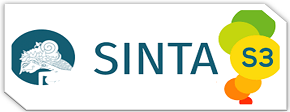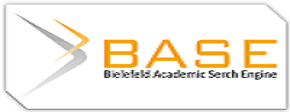Analisis Kepemimpinan Islami pada Era Modern
DOI:
https://doi.org/10.30587/jurnalmanajerial.v12i02.9782Keywords:
Islamic Leadership, Modern Era, Islamic Values, Exemplary Conduct, Leadership MoralityAbstract
Background – Leadership is a key factor in determining the directon and dynamcs of an organization. In the context of Indonesia, where the majority of the population is Muslim, the implementation of Islamic Leadership models has not yet been optimized, despite their strong foundation in moral, spiritual, and humanitarian values as exemplified by the Prophet Muhammad (PBUH)
Objectives – This study aims to analyze the relevance and implementation of Islamic leadership values in the modern era, and to explore the ideal characteristics of an Islamic leader based on the Qur’an and Sunnah
Design/ Methodology/ Approach – This research adopts a qualitative approach using literature review as the primary method. Data were analyzed from various relevant soruces discussing the theory and practice of Islamc leadership and its application in contemporary contexts.
Findings – The study finds that the principles of Islamic leadership-such as honesty, exemplary conduct, justice, and service-remain relevant and can serve as a solution to leadership crises driven by political power in the modern era. Islamic leaders are expected to carry out their duties with sincerity, as a form of worship, and with a focus on communal benefit.
Conclusion – Islamic leadership is not only compatible with the demands of modern tmes but also offers a framework for improving leadership quality across sectors. A deep understanding of Islamic values and prophetic character is essential in shaping effective and moral leadership
Research Implications – This research provides a theoretical foundation for developing leadership models based on Islamic values in contemporary organizations and contributes to the literature on leadership from a religious perspective.
Research Limitations – This study is limited to a conceptual approach through literature review and does not include empirical data from filed practices, indicating the need for further research through case studies or surveys.
References
Abbasi, A. S., Rehman, K. U., & Abbasi, O. H. (2010). Role Of Islamic Leadership In Value Based Corporate Management: The Case Of Pakistan. African Journal of Business Management, 4(18), 4003–4020.
Astuti, A., Afiyah, Z., Ningsih, S., Pranata, A., & Jannah, R. T. (2022). Kepemimpinan Dalam Islam. Educational Leadership: Jurnal Manajemen Pendidikan, 2(01), 72–85.
Dahlan, M. (2015). Membangun Manusia Berkualitas Melalui Pendidikan. Fikrah, 8(1).
Djohan, A. J., & MM, F. (2021). 5 Pilar Kepemimpinan di Abad 21. Media Nusa Creative (MNC Publishing).
Fahmi, I., & Djalil, M. A. (2016). Perilaku Organisasi: Teori, Aplikasi dan Kasus.
Halim, U. (2015). Manajemen Strategis Syariah. Jakarta: Bumi Aksara.
Kompri, K. (2015). Manajemen Pendidikan. Bandung: Alvabeta.
Kreitner, R., & Kinicki, A. (2010). Organizational behavior. McGraw-Hill/Irwin.
Moleong, L. J. (2007). Metodologi Penelitian Kualitatif Edisi Revisi.
Mulyani, S. (2022). Karakteristik Kepemimpinan Islami Menurut Prof Hamka Dalam Tafsir Al-Azhar. Ar-Ribhu: Jurnal Manajemen Dan Keuangan Syariah, 3(1), 65–73.
Naqshbandi, M. M., Kabir, I., Ishak, N. A., & Islam, M. Z. (2024). The Future Of Work: Work Engagement And Job Performance In The Hybrid Workplace. The Learning Organization, 31(1), 5–26.
Nashar, H. (2013). Dasar-dasar manajemen. Pamekasan: Pena Salsabila.
Nawawi, H. (2006). Evaluasi Dan Manajemen Kinerja Di Lingkungan Perusahaan Dan Industri. Yogyakarta: Gadjah mada university press.
Noor, I. (2011). Manajemen Kepemimpinan Muhammad. Bandung: Mizan.
Qasim, M., Irshad, M., Majeed, M., & Rizvi, S. T. H. (2022). Examining Impact Of Islamic Work Ethic On Task Performance: Mediating Effect Of Psychological Capital And A Moderating Role Of Ethical Leadership. Journal of Business Ethics, 180(1), 283–295.
Raharjani, D. S., & Mas’ud, F. (2017). Praktik Kepemimpinan Islam (Studi Kasus pada Kepala Bagian Non Medis Rumah Sakit Roemani Muhammadiyah Semarang). Diponegoro Journal of Management, 6(3), 200–212.
Raharjo, M. D. (2002). Ensiklopedi Al-Qur’an: Tafsir Sosial Berdasarkan Konsep-konsep Kunci,(Jakarta: Paramadina, 2002). Cet. II.
Rahman, R. (2017). Manajemen Kepemimpinan Islam. Makassar: Lembaga Perpustakaan Dan Penerbitan Universitas Muhammadiyah Makassar.
Rizqi, M. A. (2022). Dampak Perubahan Pada Gaya Kepemimpinan. Equilibrium: Jurnal Ekonomi-Manajemen-Akuntansi, 18(1), 76–84.
Robbins, S. P., & Judge, T. A. (2015). Perilaku Organisasi Edisi 16. Jakarta: Salemba Empat, 109–182.
Rusliana, I. (2023). Manajemen Sumber Daya Insani: Bahan Ajar Berbasis Riset Mata Kuliah Manajemen Sumber Daya Manusia Pada Perguruan Tinggi Keagamaan Dan Umum. REFIKA.
Soelistya, D. (2024). Revitalisasi Kepemimpinan Bisnis Modern. Penerbit Underline.
Tampubolon, M. (2022). Dinamika kepemimpinan. Skylandsea Profesional Jurnal Ekonomi, Bisnis Dan Teknologi, 2(1), 1–7.
Taufiqoerrochman, A. (2019). Kepemimpinan Maritim. Pandiva Buku.
Downloads
Published
How to Cite
Issue
Section
License
Copyright (c) 2025 Maulidyah Amalina Rizqi, Abdul Kadir Alamudi

This work is licensed under a Creative Commons Attribution 4.0 International License.






























 P-ISSN: 2354-8592 __ E-ISSN: 2621-5055
P-ISSN: 2354-8592 __ E-ISSN: 2621-5055 
